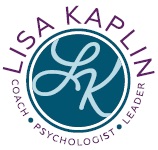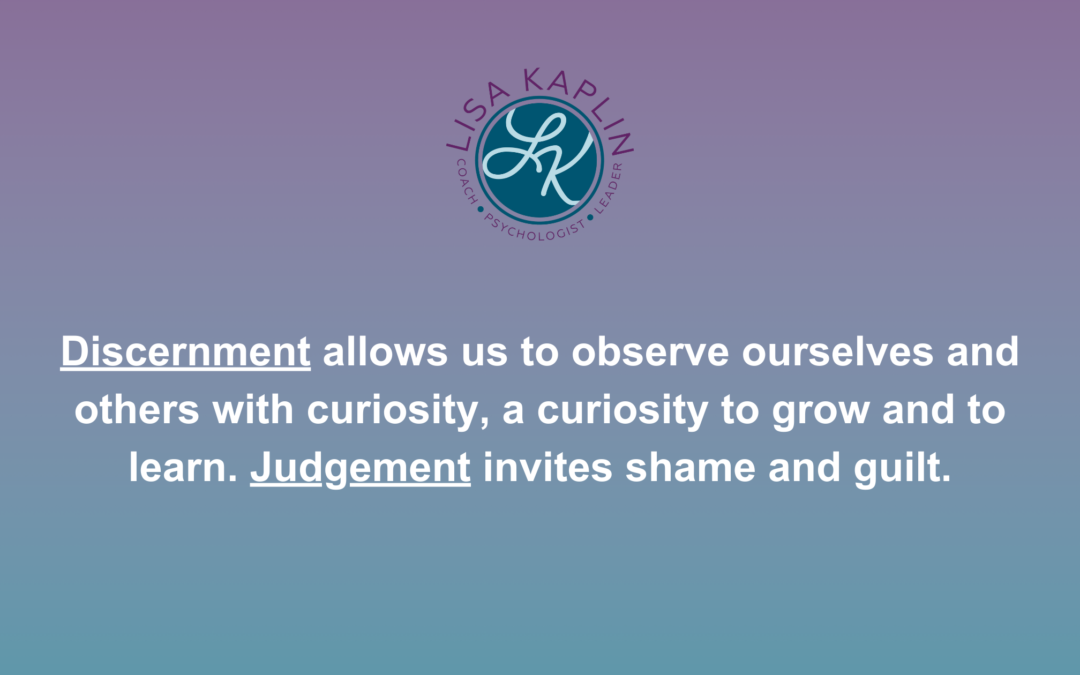One of the most common issues that comes up with my clients is related to how harshly they judge themselves. They are so hard on themselves and downright cruel in how they speak to themselves. When I call them on this behavior, they often come back with, “Lisa, if I’m not hard on myself, then I’d accomplish nothing. I need to beat myself up to keep going.” And without fail, I call BS on that. If you wouldn’t harshly judge your friends, your kids, your partner, or your co-workers in this way, then why is it okay to do it to yourself. Also, if you do judge others that way, how’s that working for your relationships?
Judgment means you are aware of something that didn’t go the way you wanted it to and then you judge it as good or bad, right or wrong. You probably smack a “should” on it and then proceed to feel like crud. Discernment, on the other hand, is noticing that something didn’t go the way you wanted it to and instead of labeling it, you think about how you want it to be different in the future. No judgment, no good, bad, right, or wrong. None of that.
Here’s how it might look. I gave a talk last week and left that talk feeling like it didn’t go the way I wanted it to. Judgment would sound like this: “I sucked at that talk. I’m bad at this.” I would feel terrible and probably not do much better next time because I already feel bad about myself. Discernment would look like this: “That didn’t go the way I wanted it to. Hmmm, how come? What could I do differently next time? What did I learn about myself or the situation for next time?” No judgment and thus no need to feel bad about myself, but rather to recognize how I want to show up differently next time.
Discernment allows us to observe ourselves and others with curiosity, a curiosity to grow and to learn. It allows us to sit quietly and look at ourselves and situations with compassion and grace and an eye for a true dose of reality. Judgment invites shame and regret to the party and let’s be honest, those two ruin parties! So how can you add some discernment to your life and release some judgment? Start small and just observe yourself. Every time you hear a judgment, catch it and release it, which gives you some space for discernment.
Love,

Lisa Kaplin Psy. D. PCC


I love this. I’m still struggling with the “should haves” & “shouldn’t s”. This one is a great practice. Thank you!!!